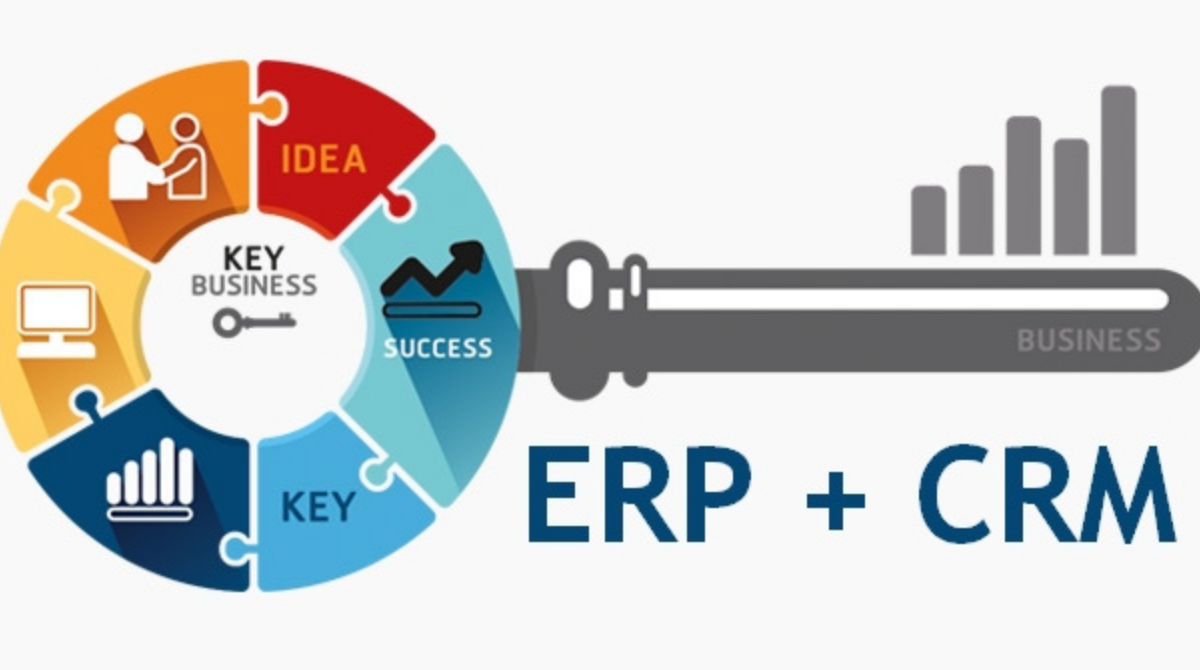CRM- Customer Relationship Management
It is a software program that allows you to keep track of all of your business customer's contacts and interactions and potential customers in a scalable way. Customer Relationship Management coordinates how a customer interacts with a business or a company. Its main purpose is to help businesses enhance their relationships. A CRM system assists businesses in staying in touch with customers, streamlining procedures, and increasing profitability.
CRM’s fundamental promise is to provide a central repository for all client data and to track all customer interactions.
A common phrase is uttered in numerous businesses “customer is king” since they add enormous value to your company. The sole objective of CRM is to foster customer retention and loyalty by building absolutely strong links & relationships. Customer relation management assists in satisfying client demands and requirements, as well as providing services that are suited for their needs.
ERP- Enterprise Resource Planning
Material requirements planning(MRP) gave way to Enterprise resource planning(ERP). It allows manufacturers to see and manage all of the resources required to run a successful business. Order management, inventory management, supply chain management, and data related to service organizations are all covered by ERP. It also addresses procurement, production, distribution, and fulfillment. To put it another way, ERP enables a company to take advantage of a set of interconnected applications.
ERP is similar to the brain in the human body, where it provides real-time visibility throughout your entire business and allows you to access it 24/7.
Enterprise resource planning also allows for far tighter financial management within a company. ERP software automates and streamlines operations, resulting in a leaner and more precise operation.
CRM vs ERP:
The primary difference between CRM and ERP is that CRM is customer data utilized by sales and customer care departments, while ERP is largely for financial data and finance departments.
(i) CRM is a single system that is utilized and understood by all employees, regardless of their IT skills or learning styles whereas ERP is a little costlier and time-consuming as it works for more than one department.
(ii) It’s considerably easier to transfer client data to a CRM than to transfer corporate data like payments, invoices, delivery, delivery notes etc to an ERP.
(iii) CRM is more commonly used by SMEs since they can more readily adjust to it. ERP is more expensive to implement in terms of time, resources and money, hence it is more beneficial to medium and large-sized companies. Implementation of ERP in small businesses is less necessary due to their small staff, where record keeping is easy.
(iv) An ERP handles multiple areas of corporate processes to boost productivity, while CRM centralizes, streamlines, and optimizes the sales process.
Benefits of CRM & ERP
CRM and ERP produce remarkable results. It provides a consolidated view of the customers. It provides total visibility and accuracy across the board, from accounting to finance, sale and support. You can effectively keep track of your customers' master preferences and determine future growth potential. Similar data is stored in customer information ERP and CRM systems. You can simply access the data from anywhere at any time. Integration of CRM & ERP systems will help to eliminate duplication. With this, you can expect up-to-date and accurate data. With their integration, mobility will be boosted, and critical process cycles will be shortened along with raised visibility and more growth. Moreover, you get an ordered view of customers, proposals, and orders in progress. Business leaders who require a centralized approach to examine pricing structures and manage KPIs like customer lifetime value and acquisition costs will benefit from a CRM system built on top of the ERP platform.
Doors Studio excellently comprises advanced system setups with well-integrated operations to keep data safely for its staff members and clients in an accurate manner.


